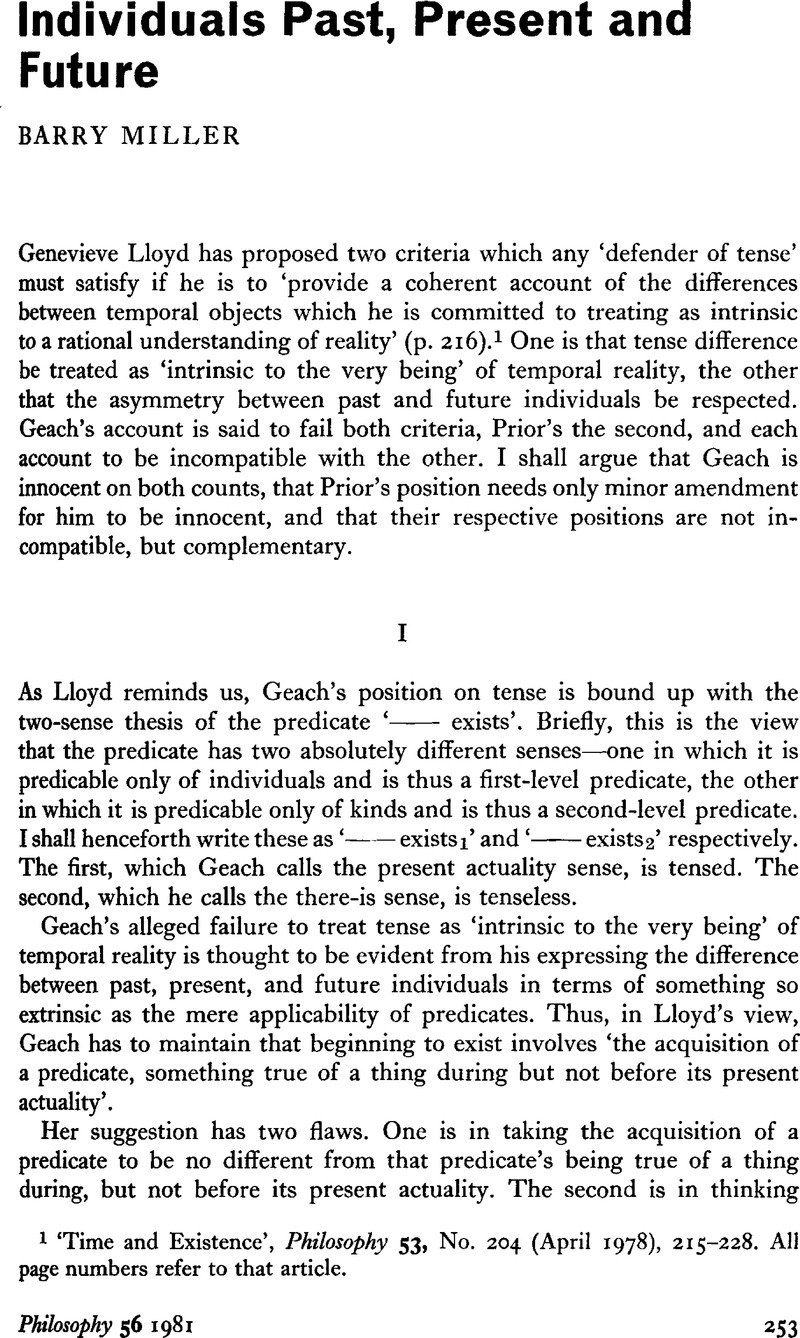No CrossRef data available.
Published online by Cambridge University Press: 30 January 2009

1 ‘Time and Existence’, Philosophy 53, No. 204 (April 1978), 215–228. All page numbers refer to that article.
2 Before Socrates began to exist it could not even have been predicted that he would exist, but only that a certain conjunction of properties would be instantiated in exactly one individual. But even if that conjunction were to include all and only those properties which in fact Socrates did later possess, this prediction would say nothing about Socrates not about any other individual either. It would merely be saying something about certain properties, viz. how often their conjunction would be instantiated, i.e. exactly once.
3 The distinction between real change and mere Cambridge change is due to Geach. A mere Cambridge change is the kind ‘undergone’ by butter whenever its price rises or falls. Its melting would be a real change.
4 G. E. Moore took issue with Russell by noting that ‘This exists’ could not be meaningless (as Russell claimed), since ‘This might not have existed’ is not only meaningful, but generally true. Prior mentions this both in The Doctrine of Propositions and Terms (pp. 132–133) and in Past, Present and Future (pp. 150–151). In the latter he endorses Moore's view by remarking that ‘there is a sense of “This might not have existed” in which what it says could be the case (and generally is) i.e. the sense: “It is not the case that (it is necessary that (x exists))” NLE!x‘.
5 In taking these expressions to modify ‘—exists’ rather than the propositions containing that predicate, Lloyd consistently misconstrues the two-sense thesis. The same misunderstanding underlies Dummett's point which she quotes with approval on p. 217. Cf. my ‘In Defence of the Predicate “Exists” ’,Mind 84, No. 335 (July 1975), 338–354.